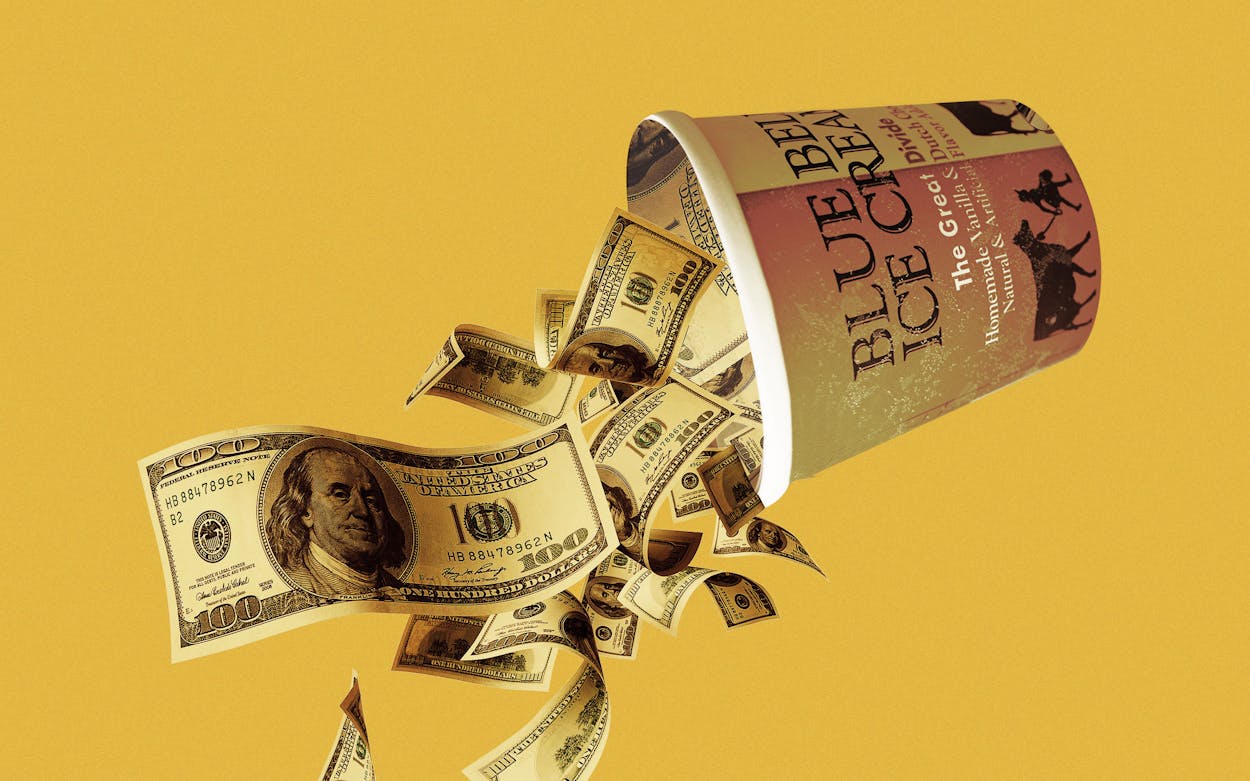On Thursday, there was yet another bad-news headline with the words “Blue Bell” in it. The United States Department of Justice, five years after the 2015 listeria outbreak that killed three people, has levied the largest criminal fine in a food safety case in U.S. history against the Brenham ice cream brand, holding the company responsible for the outbreak to the tune of $17.25 million.
The company pleaded guilty in May to two misdemeanor charges stemming from the contamination, after prosecutors charged it with distributing adulterated ice cream products, according to the New York Times. This week’s fine was issued per the terms of the plea agreement.
Blue Bell, both during and after the listeria outbreak, has occupied a weird role in Texas culture. The company has long been positioned as a folksy, small-town Texas staple. Its public image is one that involves some good folks from Brenham mixing up milk, cream, sugar, and a little love (plus, sure, a lot of high-fructose corn syrup), freezing it, and delivering it to your local grocer for you to enjoy. Within that frame, the listeria outbreak was perceived by many as merely bad luck that afflicted a beloved institution. When the ice cream returned to store shelves after multiple product recalls for bacterial contamination, Governor Greg Abbott put out a press release that included photos of him surrounded by gallons of the stuff, declaring the product a “traditional Texas treat” and insisting that “Texans can rejoice today.”
On the other hand, Blue Bell, per an FDA investigation into the outbreak—and the company’s subsequent guilty plea—was responsible for multiple failings that resulted in three deaths and ten hospitalizations from distributing the contaminated ice cream. It failed to properly sanitize equipment; it failed to prevent condensation from dripping into the ice cream, thus potentially spreading disease; it failed to clean the surfaces that products were prepared on, and so on.
In addition to the federal penalty imposed this week, the State of Texas also fined Blue Bell an additional $850,000 in 2016, the bulk of which was eligible for forgiveness. This week’s fine was the largest in Justice Department history for a criminal food contamination charge. (In April, Chipotle agreed to pay $25 million after its own outbreak sickened more than one thousand people, but that arrangement allowed the burrito chain to avoid conviction.)
Blue Bell’s fine represents more than 7 percent of the company’s annual revenue, which—according to an estimate from business analytics firm Dun & Bradstreet—is now around $222 million. That’s a dramatic drop-off from where the company was pre-outbreak: its 2014 revenue was around $640 million. A 2017 analysis found that the company’s market share had dropped by nearly two-thirds since its pre-listeria peak, as well. Those figures suggest that the rejoicing Abbott encouraged Texans to do upon the brand’s return should be a bit muted. As the company finds itself faced with a sizable financial penalty, it’s also dealing with yet another reminder of all the times the words “Blue Bell” and “listeria” appeared together in headlines five years ago.
- More About:
- Blue Bell








